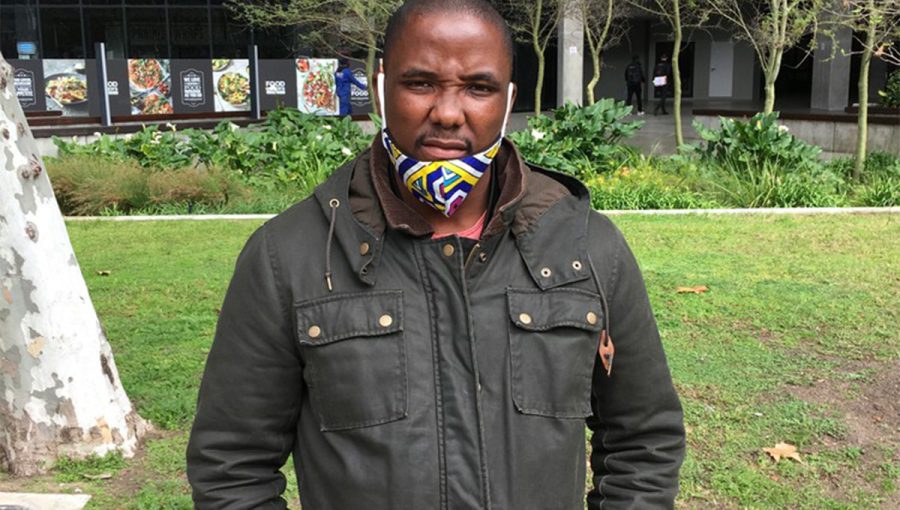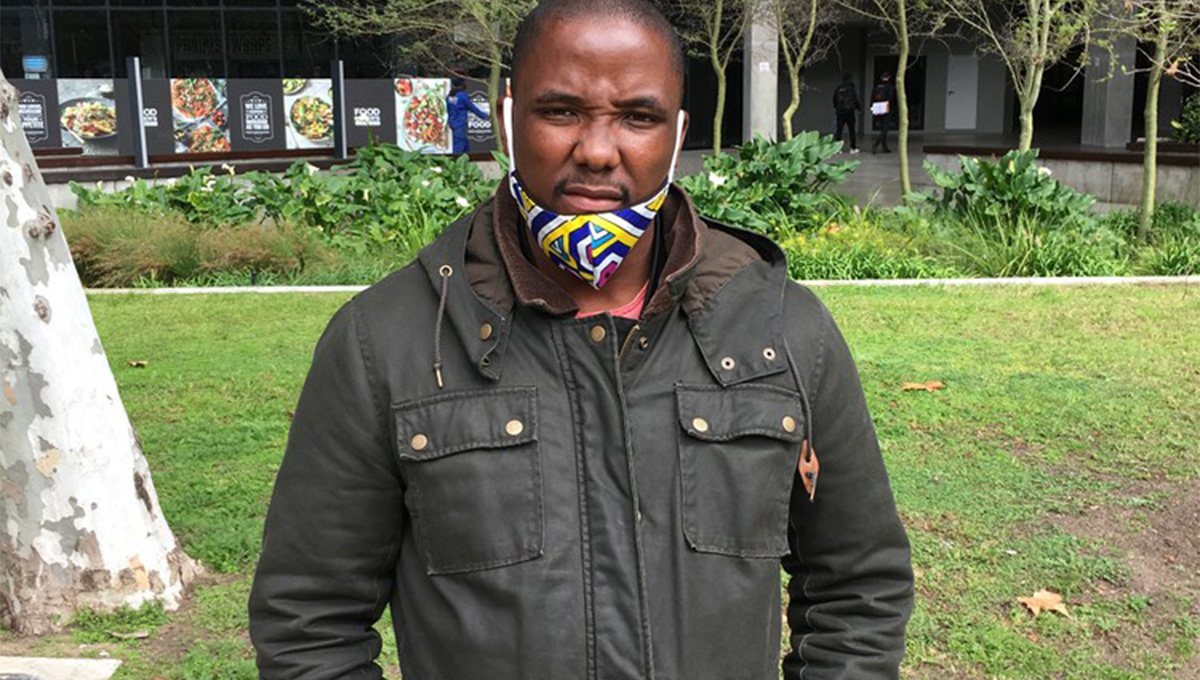
Man who was dragged naked from his shack to sue City of Cape Town
Bulelani Qolani, who made headlines when he was dragged naked from his home in Khayelitsha by Anti-Land Invasion officers during lockdown in 2020, says he is launching legal action against the City of Cape Town. Bulelani Qolani made headlines for being dragged naked from his shack in Khayelitsha by the City of Cape Town officers who were […]

Bulelani Qolani, who made headlines when he was dragged naked from his home in Khayelitsha by Anti-Land Invasion officers during lockdown in 2020, says he is launching legal action against the City of Cape Town.
- Bulelani Qolani made headlines for being dragged naked from his shack in Khayelitsha by the City of Cape Town officers who were evicting people from the newly formed settlement in July 2020, during lockdown.
- Qolani says he will be suing the City for damages he sustained during and subsequent to his ordeal.
- Civil society groups plan to launch a campaign on 8 February 2023 to mark Qolani’s litigation against the City and to “expose law enforcement brutality”.
- The City is appealing a court ruling that found it applied the wrong remedy when demolishing shacks in 2020.
This was according to a press statement published on Wednesday by the housing advocacy group Ndifuna Ukwazi.
In July 2020, a video of Qolani being dragged from his shack at a newly formed informal settlement called eThembeni was widely shared on social media. His structure and those of his neighbours were demolished in an attempt to force them off the land.
Qolani is being represented by Ndifuna Ukwazi. His attorney, Danielle Louw, said Qolani had lodged a damages claim against the City “seeking compensation for the physical and emotional injury and injury to his dignity brought on by the incident on 1 July 2020 when he was dragged naked out of his home”.
Louw said they assisted Qolani during negotiations between March 2021 and August 2022. The City had made a settlement offer but this was turned down. Qolani then decided to take legal action.
Qolani said the incident left him traumatised and damaged his dignity. “The City evicted me without an order from the court and victimised me without instructions.
“They treated me like a dog,” said Qolani.
He said he decided to approach the courts because he is “not happy with the offer from the City of Cape Town”.
“The court must decide on what I must do because I want justice,” he adds.
In a joint statement, various civil society groups have agreed to support a campaign which starts on 8 February to mark Qolani’s litigation bid against the City and to “expose law enforcement brutality”. The organisations plan to deliver a list of demands to the steps of the Civic Centre in the city centre on the same day the sheriff is expected to serve the City with Qolani’s court papers.
“We have witnessed how [the City’s] policies and bylaws continue to undermine and criminalise the poor. All this wages a war against the poor, marginalised, and working class,” the organisations said.
Following a string of shack demolitions and evictions by the City of Cape Town in recently occupied informal settlements during the Covid lockdown, the South African Human Rights Commission (SAHRC) and others took the City of Cape Town and SAPS to court.
In July 2022, the Western Cape High Court ruled that the City wrongly applied the remedy of “counter spoliation” when it demolished shacks and evicted families from several informal settlements during the lockdown.
Judges Vincent Saldanha, Mokgoatji Dolamo and Hayley Slingers found that when correctly interpreted and applied, counter spoliation — a legal remedy which allows people to forcibly re-take possession of property unlawfully taken from them — was neither unconstitutional nor invalid.
But the City was found to be incorrect in its interpretation and application of counter-spoliation when it used this to evict people and demolish their shelters, both occupied and unoccupied.
In response to our questions this week, the City told GroundUp that it has appealed the ruling made in the SAHRC litigation matter “dealing primarily with what the ambit of counter-spoliation is in the area of land occupations, and which include the Qolani facts as well”.
The City said it has been granted partial leave to appeal by the Western Cape High Court and has petitioned the Supreme Court of Appeal for leave to appeal “the balance of the ruling in that original order”.
Regarding the settlement negotiations with Qolani, the City confirmed that it was served with a letter of demand by Qolani following the incident. “The Insurance Department facilitated the matter and recommended a settlement, which was not accepted by Mr. Qolani”.
The City was not yet aware of the planned legal action by Qolani, nor any protest action planned for next week.
Wiseman Mpepo, secretary of Intlungu YaseMatyotyombeni — a social movement representing informal settlements established during Covid — said, “We feel that this is not only an attack on Bulelani Qolani. It reminds us of the apartheid government, where black people had no freedom.”
Published originally on GroundUp
© 2023 GroundUp
